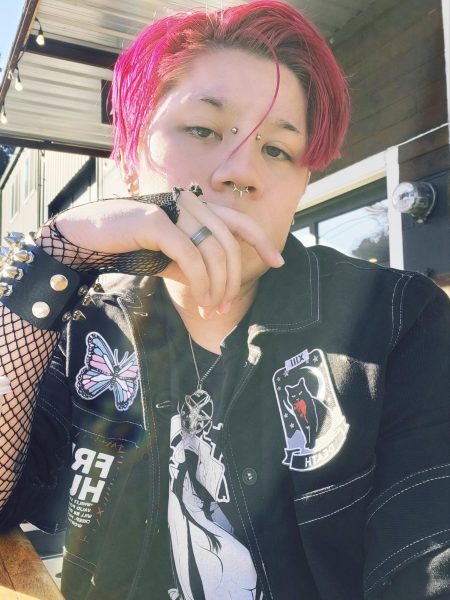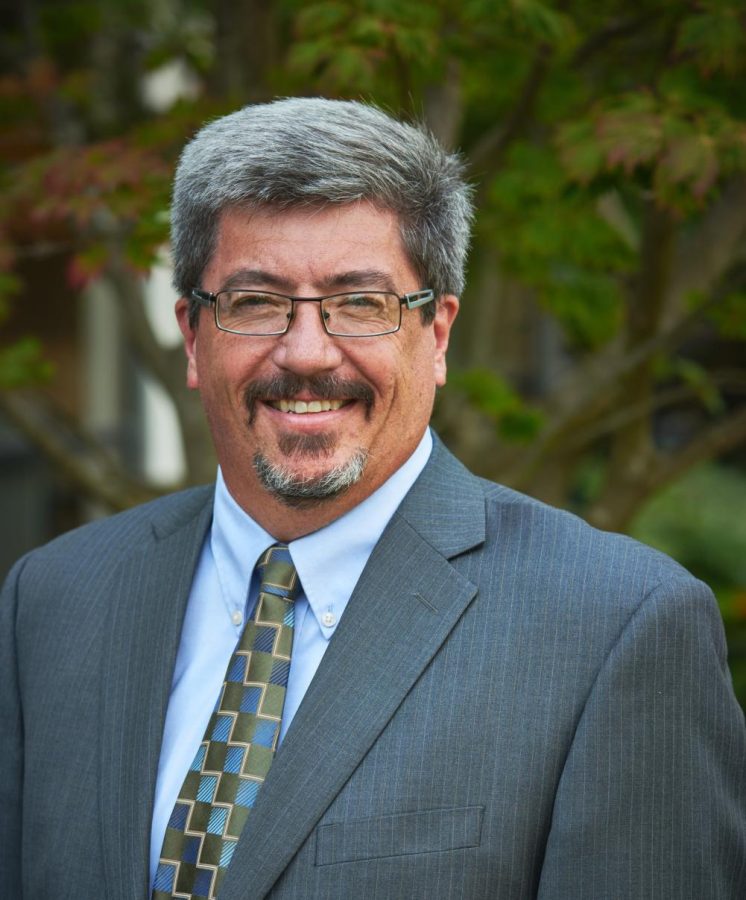
Growing up with parents who were both conservative and Catholic, as well as being the youngest child out of three, I was raised in a very restrictive household. At a young age, I felt the need to conform to whatever my parents and siblings sought for me.
When I was young I never knew that it was possible to undergo hormone replacement therapy and gender-affirming surgeries so that people were able to feel comfort in their own body. I remember the first time I watched a YouTube video about a trans person, my face scrunched up in disgust. “How could you possibly feel like you were born as the opposite gender?”, I wondered. But as time went on, I realized that those thoughts were a culmination of the hatred and transphobia that was pushed onto me by my mother.
From turning off the radio when “Same Love” by Macklemore came on to openly discouraging same-sex marriage, my family stressed to me time and time again that I was not allowed to be queer.
At about 14 years old, I began to suspect that I was not cisgender. At the time, I understood that my sexuality was far from the heterosexual norm of the culture in which I was raised, but something still didn’t feel right. When I said I was a lesbian, something inside me stirred because I still didn’t feel at ease with the label.
After this realization, I began to explore different labels at small increments. It first began with cutting my hair, which led to wearing more traditionally masculine clothing, and ended with me experimenting with using makeup to accentuate my more masculine features.
My mother grew up in the Philippines. She was raised in a strict Catholic household, so when I was growing up, she made sure I was as well. The one thing that she always taught me was that I could trust in God to guide and protect me. My faith started to falter when I began to endure both verbal and psychological abuse by both her and my older sister in my early to mid-teens, I found that I was also being rejected by the church.
I felt trapped and alone in every aspect in my life: religion, family, home life and school, so I pointed that hatred inward. I hated myself for my queerness.
It took multiple years of consistent therapy sessions, self-reflection and growing my understanding of what it meant to be queer before I finally felt comfortable with my labels. I explored the history of the LGBTQ+ community and I found solace in watching LGBTQ+ media. Movies like “Boys Don’t Cry,” “The Danish Girl” and “3 Generations” made me realize that the hatred I had for my identity was fostered by the unsupportive environment I found myself in. By consuming this type of media and meeting with multiple different counselors, I began to feel empowered by who I was. I no longer felt alone and afraid.
I realized that despite my family not fostering a supportive environment for me, I had begun to create my own small community of friends who loved and accepted me no matter who I was.
For me, being transgender is far more complex than just hating the way I look in the mirror. It’s the sort of gut-wrenching feeling when I couldn’t get my chest flat enough and my shirt would catch on my torso. It’s the feeling when suits for prom or homecoming would lay just a little too awkward across my shoulders or hips. It was going to sleepovers and standing awkwardly in the corner while everyone did their makeup and hair and I felt so out of place.
Looking back to when I was a child, I was the happiest when the other boys in my class joined me in playing Pokemon or shooting hoops. At home, it felt more natural whenever my dad would take me out fishing or show me how he fixed the car. The traditional ‘masculine’ activities were something that just felt more right to me. Years later, in 2019, when I started testosterone injections, my confidence spiked and my life changed forever.
Despite the rejection I experienced from my family due to my identity, I have found that being proud of my queerness has brought me far more joy than I could have ever imagined. I choose to be open about my identity, not because it makes me feel ‘special’ or because it makes me ‘stand out more,’ but because I was forced in a closet for many years to the point where I contemplated taking my own life.
After years of healing and self-love, I can proudly admit that I am much more comfortable with my identity.
If there is one thing that I’ve learned from proudly wearing my identity on my sleeve, it’s that life gets better. To anybody reading this who may feel helpless and alone, I want you to understand one thing: no matter how many people reject us or throw us to the curb, we will survive, we will thrive and we will continue to live.















































































C.A. (Class of '04) • Nov 9, 2023 at 8:34 pm
Thank you for sharing your story. I also looked to queer media in the hopes to find some reflection of my experience – if not in my immediate circle of family and church, at least maybe in tv or movies I could see some hope of not being alone. It is important that stories like this one are shared for the next kid doing that same search for solace in this lonely experience. It’s why representation in media, and also why found family is so important for LGBTQ+ mental health. To the author, thank you for helping the next generation by telling your story. And to The Falcon, thank you for having the empathy to signal boost what I know is shunned by many of the powers that be at SPU. Letting us be seen is literally life-saving.